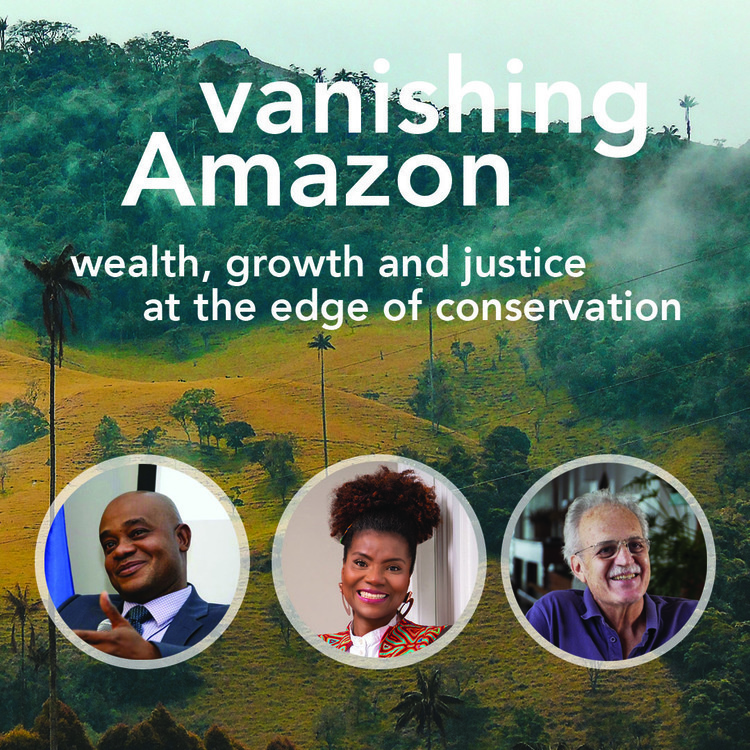
Events
Vanishing Amazon

How safeguarding the rainforest can be a source of wealth, growth and justice for communities in the biodiversity hotspots of Latin America
The Amazon rainforest, one of the planet's most important bulwarks against climate change, is disappearing at an alarming rate. Deforestation, unsustainable agriculture and cattle ranching, illicit crops and land grabbing are destroying this irreplaceable environment at a rate of over 3,000 square miles a year in Brazil alone. This is a threat not only to the planet, but also to vulnerable communities, especially indigenous and Afro-descendant communities, living at the threatened fringes of the Amazon.
In this event, three Latin American policy experts and scientists, working in and outside government, will discuss how biodiversity can become a source of strength for these communities, with the right support from policymakers. How can we balance environmental agendas with the priorities of the people living in vulnerable ecosystems to provide a secure and sustainable living conserving their own land? How can scientists and policymakers engage with local communities to create solutions to some of the socio-environmental challenges intertwined in the territory? And how can technology, a low-carbon transition, and economic development go hand in hand with economic and environmental justice in communities facing some of the gravest threats from climate change?
This event is part of the People, Prosperity and the Planet lecture series produced by the MIT Environmental Solutions Initiative.
Speakers:
Luis Gilberto Murillo, former Minister of Environment and Sustainable Development of Colombia, and MIT MLK fellow 2020-21. Murillo has over 30 years of experience in public policy design, implementation and advocacy; most notably, in the areas of sustainable regional development, environmental protection and management of natural resources, social inclusion and peace building
Mabel Torres, Minister of Science, Technology and Innovation for Colombia. As former director of Research, Innovation and Development Centers Bioinnova at Universidad Tecnologica del Chocó and Selvaceutica, she has developed a diversity of value-added products through bioprospecting and community-based innovation.
Carlos Nobre, Earth System scientist from Brazil. Nobre’s work mostly focus on the Amazon and its impacts on the Earth system. He chaired the Large-Scale Biosphere-Atmosphere Experiment in Amazonia (LBA); has been a member of the IPCC, NSF and the World Academy of Sciences; and was National Secretary for R&D Policies at the Ministry of Science, Technology & Innovation of Brazil, among other academic positions in Brazil and the US.
With host John E. Fernández, Director of the MIT Environmental Solutions Initiative and the MIT Urban Metabolism Group, and Professor of Building Technology in the MIT Department of Architecture.

